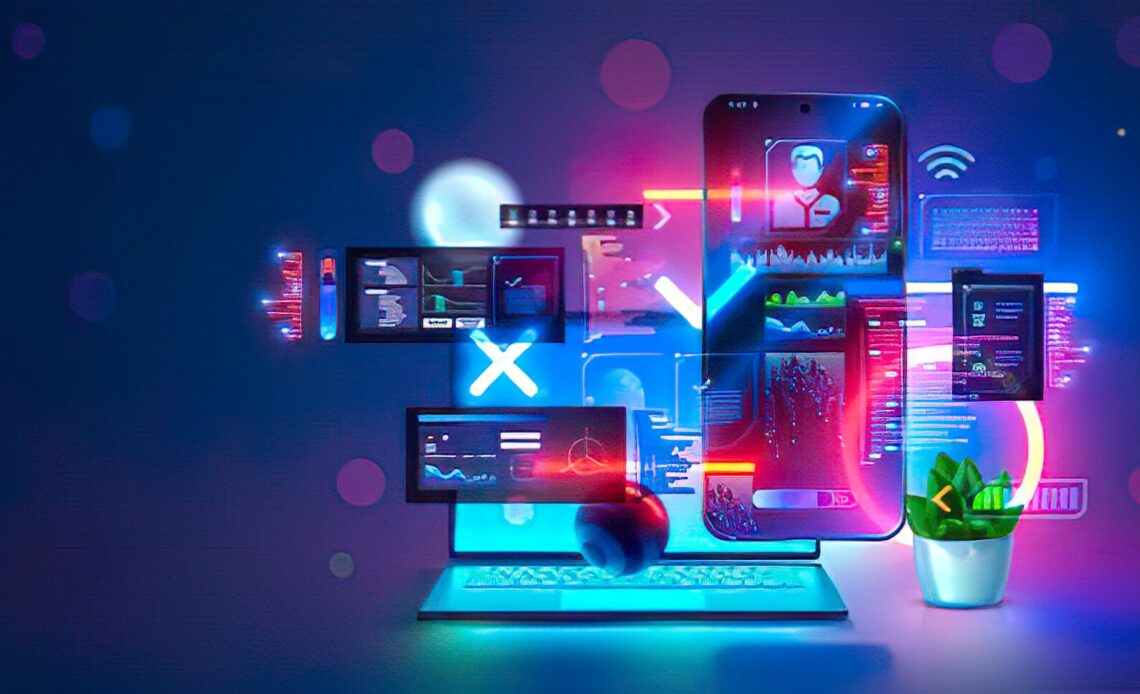Defining an iPhone App Developer?
An iPhone App Developer is a professional with profound knowledge of the iOS ecosystem, including an in-depth understanding of how this ecosystem interacts with various Apple devices like the iPhone, iPad, Apple Watch, and Apple TV. Simply put, they must be adept at creating and customizing apps within the iOS framework.
Charting Your Path to Becoming an iPhone App Developer
Diving into research, you may stumble upon an iOS skills matrix similar to the one referenced here. This matrix collates the diverse competencies one should acquire at various stages before becoming a seasoned iPhone app developer. The matrix provides a decent insight into the necessary iOS developer abilities but avoids overemphasizing any particular area. Hence, it serves as a guide to help you navigate your journey.
This discourse takes you through the indispensable iOS competencies you need to acquire to become an iPhone app developer.
Step 1: Embrace Swift Programming
A key proficiency for an iPhone app developer is the aptitude to code. The programming abilities required may differ greatly based on your existing skills, the ones you need to acquire, and even those that could assist you in transitioning your software/app development skills to other ecosystems beyond iPhone app development.
Interestingly, you could create iPhone apps leveraging Java programming skills, which could also be utilized for Android, Mac, Linux, and Windows development. Java examination training is a great option if you’re restricted by time or budget, foreseeing a shift from iPhone development to other platforms. However, training as a back-end, front-end, or full-stack developer may be more suitable if you’re passionate about software development and have adequate time and resources. For instance, you could learn how to create an iPhone application running on Angular, part of the MEAN stack.
Though different programming skills for iPhone app development are transferable, focusing on languages designed specifically for iOS and the Apple ecosystem gives you an edge. For novices in coding or those who wish to concentrate solely on iOS and Apple development, Swift is the programming language of choice.
The optimal approach to learning Swift and the iOS platform is to construct a robust foundation, beginning with Swift’s basics, moving on to more complex concepts, and finally exploring the iOS platform. The rationale behind this strategy is that most iPhone app developers often attempt to learn Swift and iOS concurrently, which often confuses them.
In this context, the suggested route is to learn the following:
- Basic principles, like variables, numbers, strings, constants, and operators
- Collections, such as dictionaries and arrays
- Control flow statements like for/while loops, if-else, and switches
- Types and interfaces, which include structures and enumerations, methods, functions, protocols, and extensions
- Object-oriented programming concepts comprising inheritance, classes, and polymorphism
Step 2: Familiarize Yourself With the iOS Platform
Upon mastering Swift, the subsequent step is to delve into the vast iOS platform, which incorporates various design patterns, frameworks, and technologies. Understanding the operations within the iOS ecosystem remains crucial even if you decide to employ a different programming language for app development in an iPhone App Development Company.
Some of the foundational aspects of the iOS platform you should understand include:
- Getting an overview of ‘Apple Developer,’ which provides the resources required to create iOS, macOS, watchOS, and tvOS software.
- Acquiring an in-depth understanding of Xcode and Interface Builder. Xcode is the IDE required to develop iOS and other Apple software. Running Xcode necessitates a machine operating macOS. The Interface Builder helps you create iOS interfaces using a GUI.
- Auto Layout within Xcode, facilitating the development of user interfaces for devices of varying sizes.
- Table views, an essential UI component, assists in managing long-scrolling lists in iPhone apps.
- Containers and storyboards. Containers are useful in designing navigation flows in the app, while storyboards are used for planning and organizing navigation flows developed using containers.
Step 3: Broaden Your Scope With Essential iPhone App Developer Skills
The following areas of expertise will significantly impact your journey at an iPhone App Development Company:
- Databases
Like other modern applications, most iPhone apps depend on databases to store and retrieve data. Understanding databases and query languages for data manipulation can be invaluable, giving you a head start in iPhone app development.
- Networking
Most modern iPhone apps necessitate data exchange over the internet, making it essential for an iPhone app developer to understand how the Internet functions. iOS simplifies this by offering SDKs that provide APIs for network requests. Besides these APIs, you must also understand DNS systems, URLs, and other general networking concepts.
By learning the iPhone app developer skills discussed above, you’ll be on your way to reaping the rewards of a thriving career at an iPhone App Development Company.



